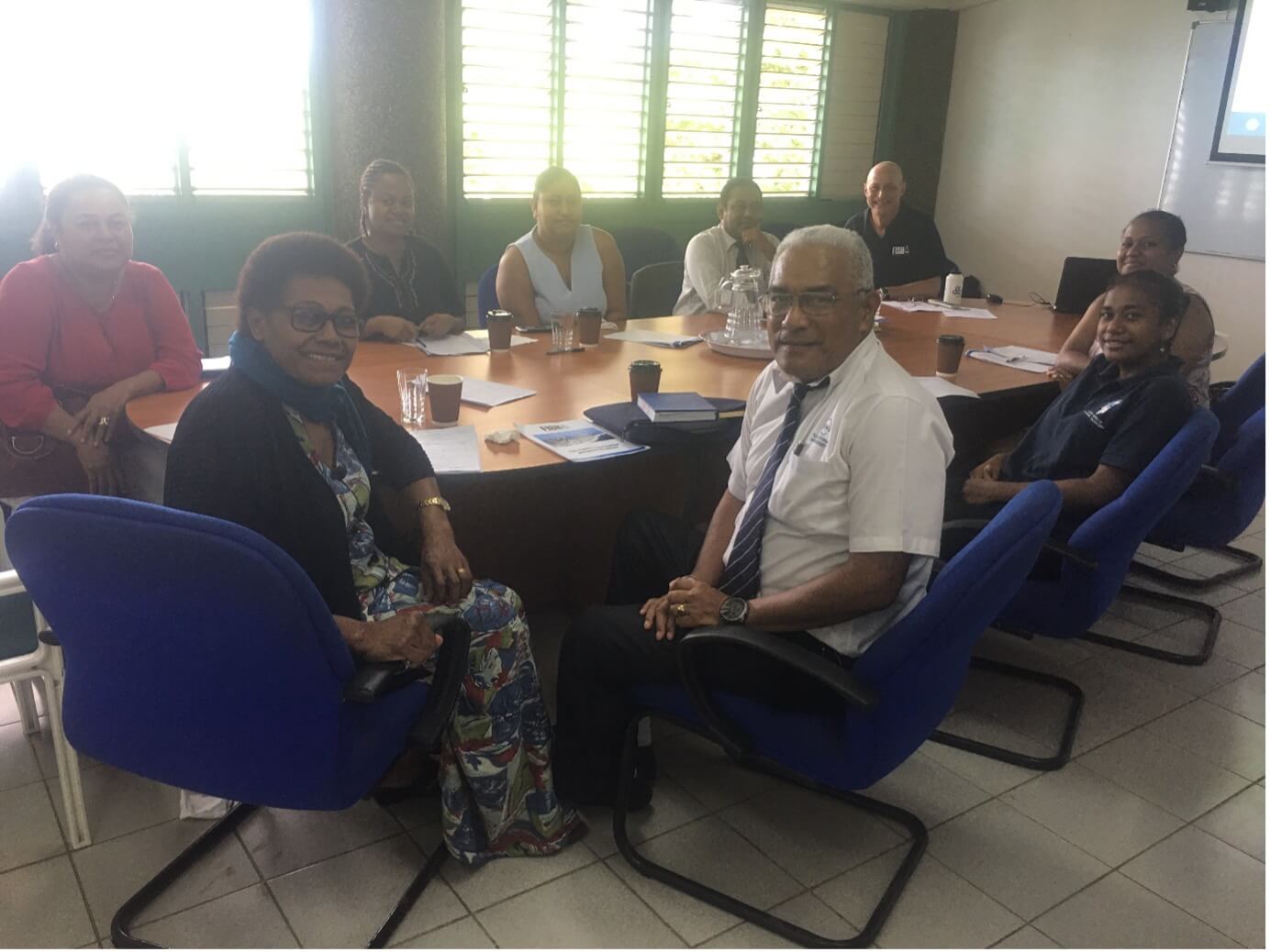
FISH Safety Foundation successfully conducted a series of training workshops in the Pacific region. These workshops, numbering up to eighteen, were delivered either in person, virtually, or through a combination of both methods. To ensure comprehensive coverage, FISH Safety Foundation collaborated with key partners in selected countries. We offered virtual training sessions to these partners, who then carried out engaging in-person workshops with larger local groups. This approach allowed for a wider reach and facilitated effective knowledge transfer by combining the convenience of virtual training with the impact of face-to-face interaction.
One of the primary objectives of the training event was to raise awareness among stakeholders within the fishing industry. By bringing industry experts, policymakers, and other key players together, FISH Safety Foundation aimed to facilitate an open dialogue about the challenges faced by fishermen worldwide. Through engaging discussions, participants were able to broaden their understanding of various safety measures, sustainable practices, and legal frameworks that can be implemented to ensure responsible fishing practices.
During the training event, participants were provided with a comprehensive overview of the important international treaties and standards that form the backbone of a robust legal framework for the fishing industry. These included conventions such as:
By highlighting these key agreements, attendees gained valuable insights into global efforts aimed at improving safety standards, ensuring competent crews, promoting social responsibility, and preventing IUU fishing.
We emphasised the need for harmonised ratification and implementation of international treaties and standards across all nations involved in the fishing industry. By promoting uniformity, countries can work together to address common challenges and ensure a level playing field for responsible fishing practices. This approach can lead to improved safety, enhanced competency among crew members, better legal compliance, and increased sustainability across the industry.
Safety and competency were key focus areas of the training event. Participants had the opportunity to learn about the latest safety technologies, best practices for emergency response, and strategies for minimising risks at sea. Moreover, the event provided a platform for exchanging ideas on enhancing crew training programs and fostering a culture of safety.
“Thank you for a very interesting and enlightening presentation at the FISH Safety Foundation Workshop. Your practical knowledge and application of your various experiences to the topics discussed made learning enjoyable and meaningful at the same time.It also made for a very interesting discussion over dinner with family and children who were very interested to hear about the various experiences and challenges of fishers on fisher vessels and how inadequate our laws areto protect them. They were also very grateful to learn about how their favourite fish the Pakapaka is caught. Given our organisation’s objectives to promote sustainable resource management through law, we were delighted to learn more about the developments of the various international instruments designed to address the various challenges associated with fishing, in particular fishers and the environment. In time we look forward to a collaborative effort with you to increase awareness of the developments in law and policy in this area in Fiji.Once again, thank you and our appreciation is also extended for the relevant and valuable support.” Kiji Vukikomoala, Executive Director, Environmental Law Association
“I would like to thank you for giving me the opportunity to attend the Safe Fishing–Legal Fishing workshop. It was very informative, and I will definitely be using the information from the workshop in my course.Captain Tevita thank you for sharing your expertise and experiences.” Dilpreet Kaur, Maritime Law Student
A big thank you for that interesting seminar that you had lastFriday. It was highly informative, and I kindly ask for your organisation to have more sessions of this short.Keep up the good work.” Pita R Sadrugu